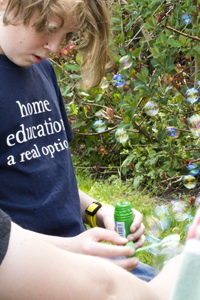There are three main choices for educating your child in England – State school, Independent school or Home Education…
When to start:
Every parent in England has to, by law, provide an education from the start of the term following their child’s fifth birthday.
School stages and ages
(State schools and many independent schools)
Primary:
- Key Stage 1: Reception, years 1 and 2 (5 to 7 yrs old)
- Key Stage 2: Years 3 to 6 (ages 8 to 11)
Secondary:
- Key Stage 3: Year groups 7 to 9 (ages 12 to 14)
- Key Stage 4: Year groups 10 and 11 (ages 15 and 16)
- Year Groups 12 and 13 (ages 17 and 18) are referred to as Post 16.
In many other countries formal education does not start until age seven, as it does in independent Steiner Waldorf schools. And within home education it is common for informal methods to be used for the majority of a child’s education.
If you prefer to start school later, you can delay your child’s school start as long as you like by home educating, then apply to schools when your child is ready. With pre-school aged children you may choose to do things full-time as a family, or supplement with play-based settings such as nurseries, playgroups.
How to Choose a School
Inspection reports, reviews and league tables can all be helpful, but you can learn far more by visiting a school and talking to pupils and observing the teachers and pupils.
Remember to ask lots of questions.
How does the school seem to you?
Do the teachers and children seem happy and how do they interact with each other?
It is important to remember that not all children will benefit from a high ranking academic school, and there is more to school than what you learn.
Any reports of a school, whether by writers or parents are subjective, based on their own opinion and background, and may not necessarily reflect your or your children’s priorities or viewpoints.
Mixing it up
Many parents will use a different option at different times, or for different children, depending on their individual needs. Another option is flexi-schooling, where a child is registered at school, but attends part-time at the discretion of the head teacher and is home educated offsite the rest of the time.
Find out more



I think all of what you say here is specific to England & Wales. You’ll need to expand this page considerably if you plan to include Scotland and NI as you did in Part One. School starting age, references to Reception, exams etc.
Under “When” it may be useful to distinguish between the situation in Scotland if a child’s school start is deferred and she therefore joins a younger year group, compared to England/Wales where the child always remains with “age peers” so that a deferred start means “missing” part or all of Reception. This confuses some parents. A common concern among parents in the latter countries is that children will be “behind” if they don’t start school at the same time as their peers, the assumption being that learning is put on hold whenever the child is not at school.
I think it would be worth highlighting the School Admission Code as it applies to school starts for children eligible to attend Reception from Sept 2011. Parents will have more options (absolute rights) than in the past, including the right for their child to spend an entire year in Reception or to defer, the right to choose between part-time and full-time, and the right to choose a funded nursery place, which can be p/t or f/t, instead of school. http://www.dcsf.gov.uk/sacode/ I have a suspicion that LAs are not going to be keen to publicise all of these options.
It could also be good to point out that parents may delay their child’s school start as long as they like. A school place which has been offered will only be kept waiting for the child under the circumstances outlined in the SA Code, ie not beyond the end of Reception and not beyond the time when the child reaches compulsory education age. Where oversubscription is not a concern, parents may choose to delay their child’s school start beyond compulsory education age, by home educating.
‘A minority of parents choose to educate their children themselves, outside school. For some it is a continuation of the preschool years and for others a response to school not working for that child, sometimes due to bullying or special needs.’ -I think the tone of this could be adjusted slightly.
This could be phrased more positively:- A growing number of parents are choosing to educate their children themselves…’a minority of parents’- maybe its just me or does this sound negative, like just the brave /& or wierd parents choose this option?
Also 2nd part of that sentence seems to focus on negative reasons more than positive- maybe add something like : For some families it is a positive lifestyle choice made because of the unique freedom and individuality that only an education outside of school can provide
Just my thoughts
:).